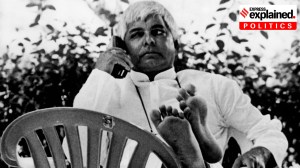Maharashtra to introduce spoken English classes in Marathi schools
Failing to attract students, more Marathi-medium schools in the state are facing the inevitable conclusion — a shut down.
To arrest their depleting student count, the government is set to introduce spoken English classes in Marathi-medium schools. The education department has started training 10,000 teachers across the state to conduct such classes.
The project aims to ensure that teachers start conversing with the students in English and ultimately teach some of the subjects in English. “Initially, we wanted to start this project in a few hundred schools on an experimental basis, but the response was amazing. Many schools came forward with a demand to start the project in their schools. We expect that the project will help retain students in Marathi schools as a first step,” said Nand Kumar, principal secretary, school education department.
Kumar added, “Today, even the poorest parents want their children to learn English. It is one of the major factors making students opt out of Marathi schools and join private English-medium schools. So, we decided to work on it with the best linguistic experts for our teachers, who will eventually start speaking in English with students.”
Failing to attract students, more Marathi-medium schools in the state are facing the inevitable conclusion — a shut down.
The decline in enrollments has crossed a whopping 60 per cent. According to a white paper released by non-government organisation Praja Foundation, on December 2016, the number of students in BMC-run Marathi medium schools has declined from 1,16,086 in 2011-12 to 71,454 in 2015-16.
This despite the fact that the BMC schools have a midday meal plan and very low fee. The education department’s own data released in 2016-17 shows an increase of enrolment in English medium schools by 2,65,478 in 2015-16 as compared to 2014-15. At the same time, the Marathi medium schools have witnessed a decline in enrollment by 24,228 in 2015-16 as compared to 2014-15.
Educational activists and school managements have blamed the government for the decline of Marathi schools. “Efforts by the state government till date have been poor. All we have seen is that applications made during the Congress-NCP tenure are rejected by the BJP government, and proposals passed by the BJP are opposed by the Congress-NCP leaders. They can settle their difference at their level, why should Marathi schools suffer,” Dr Deepak Pawar, convenor of Marathi Abhyaas Kendra, said.
Refuting these allegations, Kumar said. “School managements are blaming their own apathy on the government and are failing to understand the efforts put in by the state.”



- 01
- 02
- 03
- 04
- 05



























